TikTok, Instagram diet trends exposing youth to disordered eating
Fad diets and weight loss trends on platforms like Tik Tok and Instagram could be putting young people at risk of eating disorders and even making them a target for predators.

NSW
Don't miss out on the headlines from NSW. Followed categories will be added to My News.
Fad diets and Covid-kilo weight loss trends on Gen Z platforms like Tik Tok and Instagram could be putting young people at risk of eating disorders and making them an “easy target” for predators like “ana-coaches”, experts warn.
With their fun dancing videos, makeup tutorials and playful image, Tik Tok and Instagram appear harmless, but experts say the algorithms behind these platforms expose young people to potentially dangerous content.
As more young people swap healthy social habits for screen time in the lockdown, experts warn trends like ‘what I eat in a day’ on Tik Tok and ‘Covid kilos be gone’, ‘calorie counting’ and ‘skinny af’ on Instagram could be subconsciously influencing their self-image.
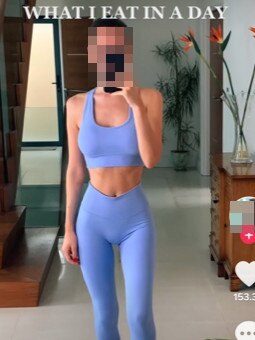

Social media expert in eating disorders Dr Suku Sukunesan says these hashtags can also expose young people to something much more sinister — anorexia coaches or ‘ana-coaches’ — predators who lurk online and give young people diet restriction advice.
“You have the perfect storm of factors in lockdown: Increased isolation increases the chances of them meeting someone they don’t know, there’s more content online and parents are busier at work,” he said.
Young people who want to lose weight or already have eating disorders sometimes reach out to these coaches directly for advice, creating a vicious cycle.
Dr Sukunesan’s research found there are hundreds of daily online requests for ana-coaches across different social media platforms, with some secretly harbouring sexually predatory behaviours.
“They lurk around specific topics with words like EDTW (what I eat in a day,) as well as CW (current weight) GW (goal weight.). These types of posts make them an easy target,” he says.
The ‘what I eat in a day’ hashtag on Tik Tok has thousands of posts and 8.3 billion views, with many users posting images of restrictive eating habits and dramatic weight loss strategies.

Over the past few months, The Butterfly Foundation has been increasingly alerted to problematic content on social media and has been working with Tik Tok and Instagram to try to stop it.
The foundation has been working with Tik Tok to ensure that users who search for concerning terms are immediately prompted to call the helpline.
But according to Dr Sukunesan, the way Tik Tok and Instagram curates feeds for users can make it difficult to moderate.
“Because the platforms show you more of what you keep watching it can very quickly turn into people getting invited to fast together and other dangerous behaviours,” he said. “It can be hard to manage.”
Even seemingly harmless content from wellness influencers promoting diets can be dangerous because such posts can normalise restrictive eating habits, according to The Butterfly Foundation’s prevention manager Danni Rowlands.
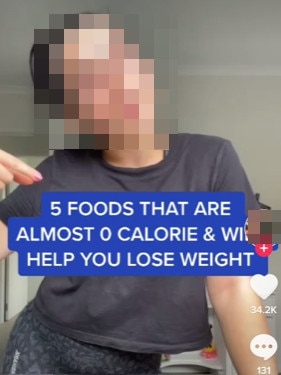
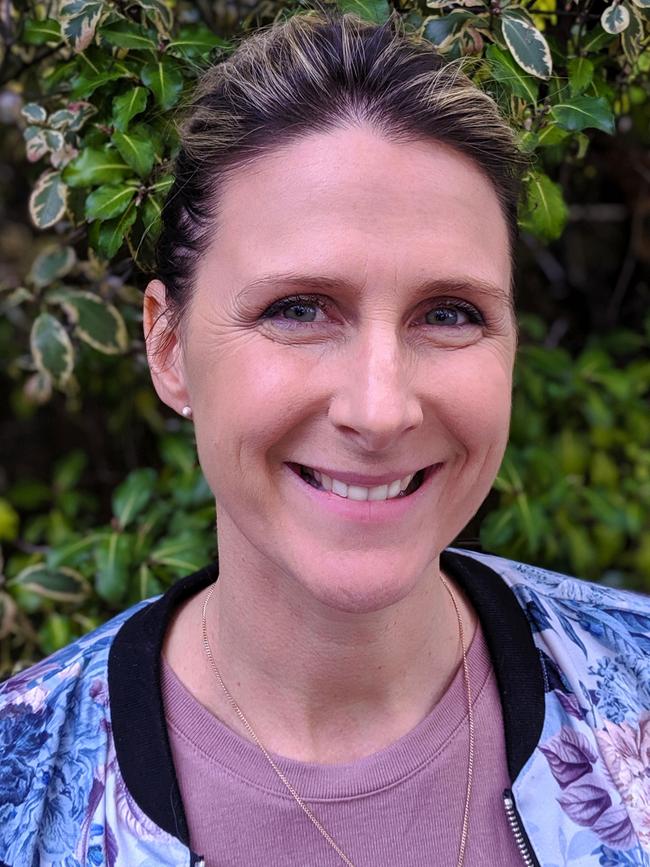
“There is no such thing as a safe diet, anything that’s encouraging somebody to restrict or to dramatically change the way that they eat, removing food groups is really highly problematic,” she said.
“It’s really important that if someone is feeling dissatisfied or unhappy or that they seek professional advice rather than going to wellness influencers or social media pages for a solution.”
In July, ex-Bachelorette Elly Miles promoted the Carnivore Diet to her 206,000 Instagram followers in which she labelled some vegetables “toxic.” Diets like the liquid diet, calorie restriction and 18:6 fasting are also prevalent on social media, all of which can be an eating disorder warning sign.
“Dieting is a significant risk factor to the development of an eating disorder. And we also know that the more dissatisfied someone feels about gaining weight, the more likely they are to engage in those behaviours,” Ms Rowlands says.
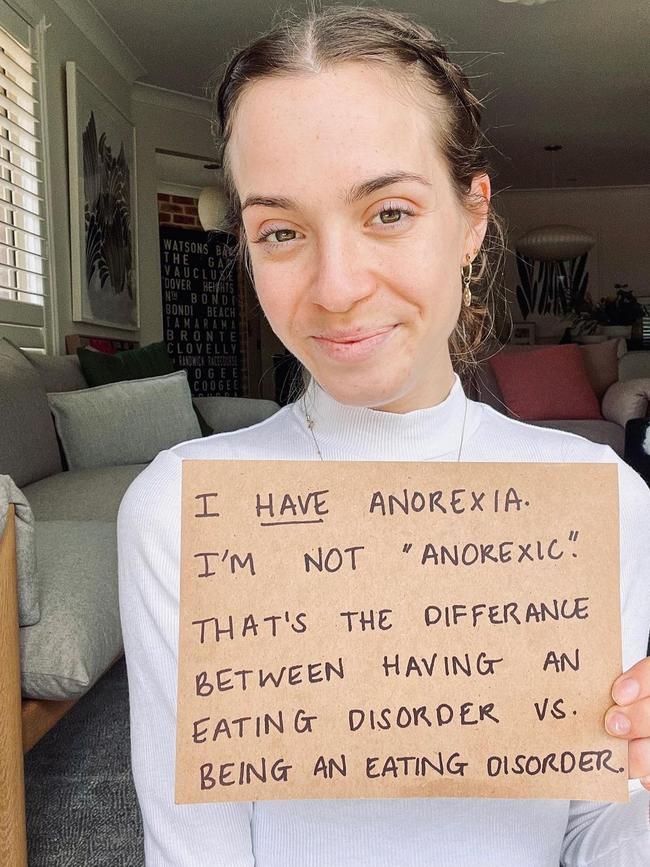
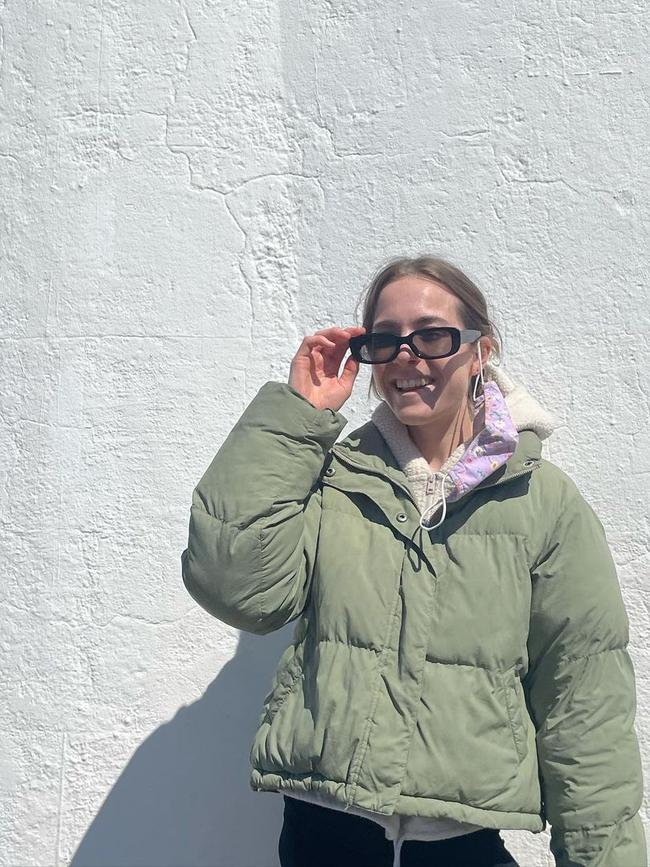
Research from the foundation shows young people who diet moderately are six times more likely to develop an eating disorder.
Twenty-one-year-old Ballina resident Imogen Barnes developed anorexia aged 17 after going on a medication for OCD which had a weight gain warning.
While she is now on the road to recovery, she says certain content on social media can be particularly triggering for people with eating disorders.
“There’s two sides to the eating disorder sufferer community online. One is really recover-oriented and the other is pro-anorexia and that’s very harmful,” she said.
“Unfortunately now on Tik Tok and Instagram it is so so easy to accidentally come across content that was once kind of reserved for like the dark sides of the internet... and it can be lethal.”
As well as getting professional help, curating her social feeds with diverse bodies and people has helped in her recovery.
“I have really curated my feed and my social media to be diverse so that I’m seeing a whole vast array of bodies and ethnicities and shapes and sizes and people and views,” she says.
According to Inside Out Director Prof Stephen Touyz social media content around fad diets or content focusing on weight gain during the lockdown can place unrealistic expectations on young people.
“Content like that can really push the buttons of people with eating disorders and put people at risk of disorders,” Prof Touyz said.
Parents who notice eating disorder warning signs in their children like sudden weight loss, restrictive or different eating habits and dieting, should reach out for professional help, he says.
Dr Sukunesan says there are ways to protect your child online like ensuring their accounts are private and having candid conversations with them about social media literacy.
“It’s about having open conversations about the sort of content and hashtags that are out there,” he says.
A spokesperson for Tik Tok said the platform does not allow content depicting, promoting, normalising, or glorifying eating disorders.
“When a user searches for terms related to eating disorders, we don’t return results and instead we direct them to the Butterfly Foundation, and provide them with helpful and appropriate advice,” they said.
“We are deeply committed to child safety and have zero tolerance for predatory or grooming behaviour toward minors. We do not tolerate sexual harassment on our platform towards any member of our community. We will take action that may include banning accounts and devices.”
Instagram was contacted for comment but did not respond.
If you need help or are concerned about someone else, call the Butterfly Foundation on 1800 334 673.
More Coverage
Originally published as TikTok, Instagram diet trends exposing youth to disordered eating



